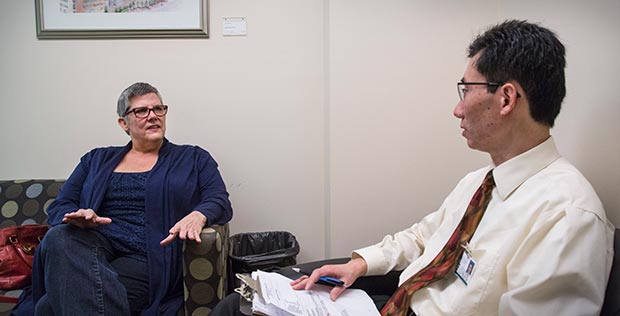Breast Cancer and Depression
 The stories of cancer patients are always interesting to me. For some it is a mighty life and death struggle worthy of the bravery seen in many of the mythological struggles that fill our literary traditions. What cancer patients go through should be inspiration for all of us confronting the disorders of life.
The stories of cancer patients are always interesting to me. For some it is a mighty life and death struggle worthy of the bravery seen in many of the mythological struggles that fill our literary traditions. What cancer patients go through should be inspiration for all of us confronting the disorders of life.
We all have heroes in our lives. In my position I have many heroes (heroines)—all my patients who have had to confront a breast cancer diagnosis, its treatment, and then the long period wondering for certain if they have conquered it. It is an arduous process for the patients and their support system. It is arduous process for the treating doctors and support staff who will confront these issues if they observe closely and ask a few key questions.
The article below addresses the variable ups and downs of the cancer experience for the patient. What is clear in the article is a reluctance on the part of many to confront mood disorders and their potential alleviation through various kinds of therapy and/or medication.
The key takeaway for me in reading this is to be aware of the ups and downs of confronting and living with cancer and to not be afraid to confront those moods and seek help. It is a message for both patients and their loved ones and for the treating team….
Excerpt:
“When Ruth Kaminski learned that the “spot of concern” on her mammogram was breast cancer, first she had a good cry. Then she tried to reassure herself, her stricken husband and her three grown children that the cancer was caught early. Her mantra became, “It’s no big deal.”
In January 2015, she had a lumpectomy. A month later, she started the first of what would be seven weeks of Monday-through-Friday radiation treatments.
On the outside, Kaminski, then 60, was her laughing, clowning self, “always sweet and smiling and up to shenanigans, trying to cheer up my radiation buddies,” she said. As long as she focused on others, she could pretend that everything was OK.
But everything was not OK. She took to crying in the shower.
“Once you hear that word ‘cancer,’ you’re never going to be the same,” she said in a recent interview, a year after her surgery. “You are struggling to be a cancer survivor. It is scary and lonely, since no one can do the treatment for you. It forces you to accept changes you aren’t prepared for and didn’t want. It is painful, emotionally and physically.”
To read the entire article, please click here.
